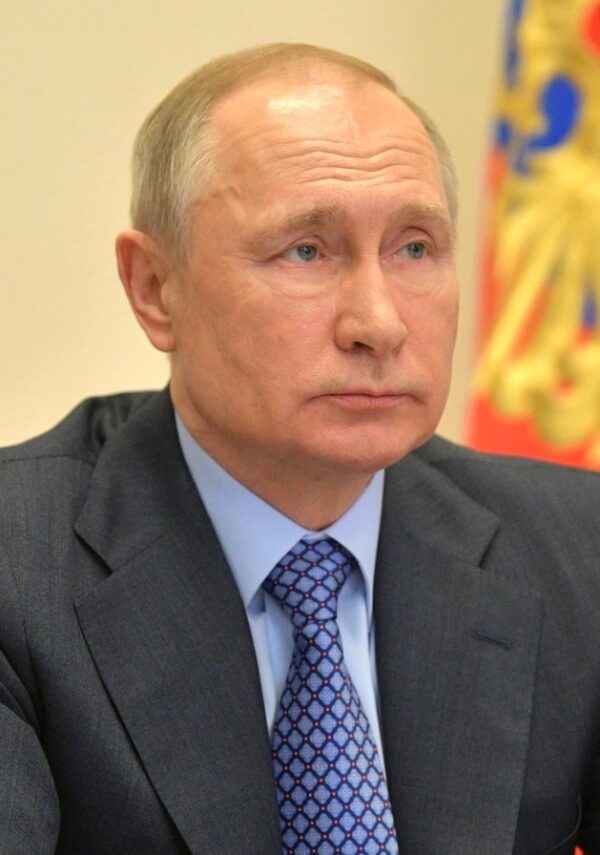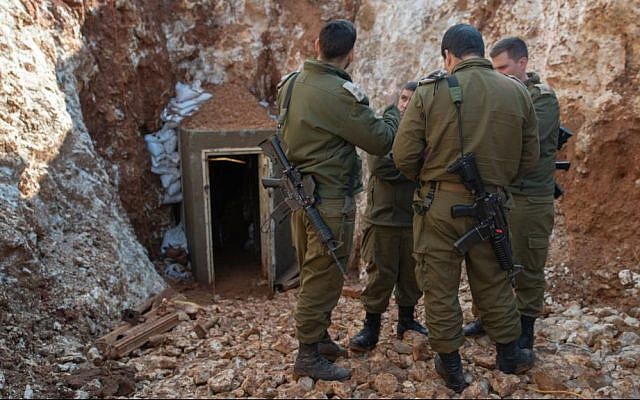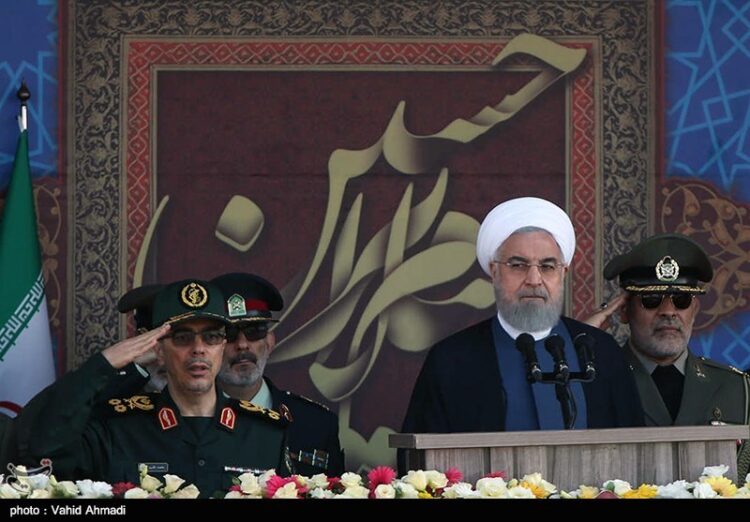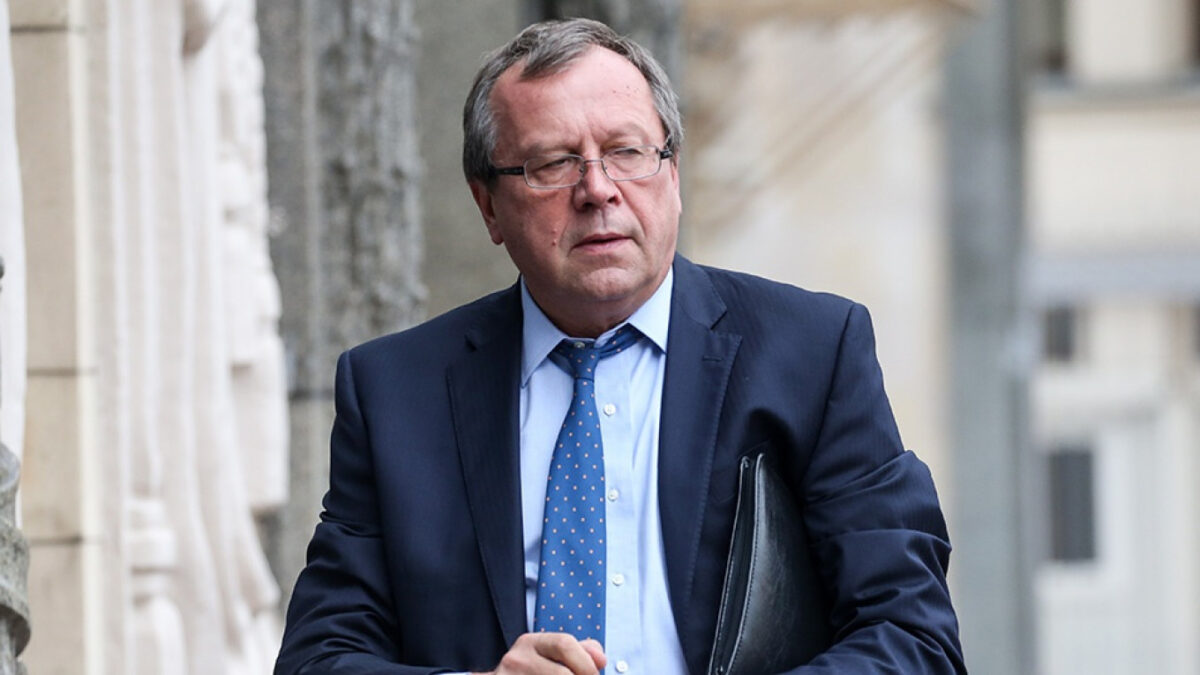Russia’s ambassador to Israel, Anatoly Viktorov, made some very strange comments the other day that cast doubt on his grasp of current affairs in the Middle East.
In an interview with The Jerusalem Post, he accused Israel of aggressive behavior toward Hezbollah, claimed that the cross-border tunnels the Israeli army discovered last year in southern Lebanon were not necessarily dug by Hezbollah, and denied that Iran is destabilizing the region.
“The problem in the region is not Iranian activities,” he said. “It is a lack of understanding between countries and non-compliance with United Nations resolutions in the Israeli-Arab and Israel-Palestinian conflict.”
Speaking of Israeli airstrikes against Hezbollah arms convoys en route from Syria to Lebanon, he said, “Israel is attacking Hezbollah, Hezbollah is not attacking Israel.”
With reference to Hezbollah tunnels, Viktorov said Israel had “no proof” that the Lebanese militia built them.
Adding that Israel should refrain from launching attacks in “the territories of sovereign UN members,” Viktorov said that Russia disapproves of Israeli air strikes in Syria aimed at Hezbollah, Iran and the Syrian armed forces.
A day after The Jerusalem Post published its interview with Viktorov, the Russian embassy in Tel Aviv complained that his remarks had been taken out of context and distorted.
The Jerusalem Post stood by its reporting, and I am inclined to believe it rather than the Russian embassy.
Viktorov, who has been Russia’s envoy in Israel since 2018, may have backtracked after realizing he had put his foot in his mouth. The accusations and claims he unleashed are bizarre and are not grounded in reality.

One can only wonder whether Russian President Vladimir Putin had prior knowledge of the interview. Fortunately, as the Russian embassy noted, his remarks will not affect Russia’s cordial relations with Israel.
An examination of Viktorov’s comments strongly indicate he should have known better than to exonerate Hezbollah of aggression. Hezbollah, an ally and surrogate of Iran, is dedicated to Israel’s destruction. In the summer of 2006, Hezbollah triggered a month-long war with Israel. Since then, Hezbollah has initiated a series of clashes with the Israeli army.
Hezbollah has amassed an arsenal of more than 100,000 rockets aimed directly at Israel. Contrary to Viktorov’s assertion, Israel has every legitimate right to attack Hezbollah convoys filled to the brim with new weapons acquired from Iran and Syria.

The tunnels that Israel found in 2019 on its northern border were constructed by Hezbollah for the express purpose of infiltrating men and materiel into Israel in case of a new round of fighting. As Viktorov well knows, or should know, Hassan Nasrallah, the leader of Hezbollah, has boasted that it will try to invade the Galilee in the event of another war. It’s difficult to understand why Viktorov accused Israel of aggression when the guilty party is obviously Hezbollah.
It’s truly puzzling why Viktorov requires proof that Hezbollah built the tunnels that Israel fortunately detected. Whose tunnels could they otherwise be? No one else Lebanon but Hezbollah has a vested interest in spending a fortune on such a military project. One can only assume that Hezbollah is still plotting an invasion of Israel through a maze of tunnels, which Israel may or may not detect in the future.
It is true, as Viktorov pointed out, that the unresolved Palestinian issue is a constant source of regional tension. But to claim that Iran bears no responsibility for stoking tensions is absurd. Iran, Syria’s closest ally the Middle East, is attempting to build a military front against Israel on the Syrian side of the Golan Heights. This is no secret.
Iran’s malign activities explain why Israel has repeatedly struck Iranian bases in Syria, Russia’s chief client state in the Mideast. The Israeli government has every right to do this as long as Iran is intent on attacking Israel and Syria tolerates Iran’s armed presence on its territory.

On the day the Viktorov interview was published, Iranian President Hassan Rouhani told the new Syrian foreign minister, Faisal Mekdad, that Iran will continue to support Syria “until the liberation of all occupied lands, including the Golan.”
We know what this code language means, given Iran’s categorical rejection of Israel’s existence and the inflammatory statements attributed to its political and military leaders.
Most recently, the head of Iran’s Supreme National Security Council, Ali Shamkhani, wildly branded Israel as “blood-sucking and anti-human” and declared that “the world will undoubtedly become safer without the Zionist regime.”
This is the noxious enemy that Israel faces today. Does Viktorov have any idea what Israel is up against in confronting a foe as vile as the Islamic fundamentalist Iranian regime?
Although Viktorov’s interpretation of certain Middle East realities leaves much to be desired, he did not strike out altogether.
He reiterated Moscow’s support of Israel’s normalization agreements with the United Arab Emirates, Bahrain and Sudan.
And he endorsed a two-state solution for Israel and the Palestinians. “We strongly believe that the Palestinian question should not be put aside,” he said. “This problem will remain and endanger not only the countries and peoples of the region but also many others around the globe.”
Precisely.
